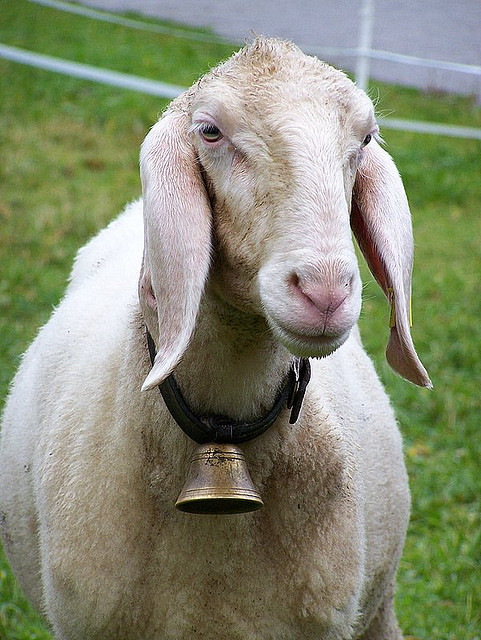 When I moved to California over 20 years ago, I left my Midwestern roots, my family and friends, everything I knew. I moved 2,000 miles from home. That is about 500 miles more than the distance between London and Moscow.
When I moved to California over 20 years ago, I left my Midwestern roots, my family and friends, everything I knew. I moved 2,000 miles from home. That is about 500 miles more than the distance between London and Moscow.
You have to cross two mountain ranges to get from the Midwestern United States to California. These days, with air and train travel and even car travel, the trip isn’t the arduous journey it was when California first became part of the United States. But it is still a long distance culturally from much of the rest of the country. It took me a very long time to feel like I “spoke the language” here.
This isn’t like back home
If you have ever lived in another country or even in two different regions of the United States, you know what it’s like to see culture from the outside. People’s habits, ways of speaking, expectations, and interpretations of you are all very different from back home.
In some ways, Catholics are foreigners in whatever culture we find ourselves. The National Directory for Catechesis lists as the first challenge to our ministry as catechists “the pervasive secularism of our culture” and the constant struggle to live our faith in the midst of that culture (13).
When I crossed the mountains to come to California, I didn’t just drive through some challenging geography. I also crossed a mountainous cultural divide. Once here, once I experienced first-hand how strange everything was, I had two options: go home or make a home.
We only have one choice
As Catholics, when we say that the culture in which we find ourselves suffers from “pervasive secularism,” we are saying it is a very strange place. We might even be saying it is an unholy place. Or at least it is not favorable to the holiness of our Catholic culture. When we find ourselves in that strange, secular place, we don’t have two choices. We have only one choice. We cannot go home. Home is where God sends us. Our only choice is to make a home in the midst of that strange, secular, perhaps unholy place in which we live.
But here’s the thing. To make a home in that place means to feel we are indeed home. We should not feel like visitors or messengers passing through. We should begin to feel like one of the natives. Pope Francis just wrote about this in “The Joy of the Gospel.” He said that we have to “take on the ‘smell of the sheep’” (24). Isn’t that a great image!
The missionary option
However, I know that sometimes I’d rather not. No thank you, Holy Father. I have a nice clean parish I can hang out in, and everyone knows the rules. For the most part, everything runs smoothly there, and we do some good and holy work there. There is plenty within the parish to keep me busier than Martha for quite a long time.
I think Pope Francis might have read my mind, because here’s what he says next:
There are ecclesial structures which can hamper efforts at evangelization, yet even good structures are only helpful when there is a life constantly driving, sustaining and assessing them…. I dream of a “missionary option”, that is, a missionary impulse capable of transforming everything, so that the Church’s customs, ways of doing things, times and schedules, language and structures can be suitably channeled for the evangelization of today’s world rather than for her self-preservation. (26, 27)
I think what the pope is saying is that if you find yourself in California, you can’t pitch a tent, throw up a wall around it, and pretend like everything inside the wall is “Missouri.” As a church, we have to go out. We have to somehow take our Catholic culture out into the smelly sheep culture of wherever we are and be part of the society.
How do we stay Catholic?
This is not to say we are abandoning our Catholic culture. We are, after all, always disciples of Jesus Christ. The challenge is, how do we bring our faith out into the world, not fearing that we’ll get a little dirty, and still remain good Catholics? We’ll take up that question in a future post.










I sincerely LOVE Team RCIA :-)! Your resources/insight from other TEAMS has been and is empowering, encouraging, & a blessing. May those selected by their pastor to care for adults in all RCIA programs continue to hear & feel the call from God.
In my opinion, our students are like newborn baby” that God has entrusted us to care for. We are to show, share, & teach them FAITH as shown in God’s word/catechism, & how to live in the world as new /renewed beings in the Body of Christ. As this “newborn baby” grows into a child, we should be quick to listen to them. To share our experience of how we endured thru problems in life (& how people in the bible handled their trials and tribulations. What was acceptable in God’s eye that led to a blessing, & the consequences of not obeying His word). It give us continued expectations that He is with us wherever we go. We are to give our problems to God. He carries us when we are weak. Hope doesn’t disappoint. Lastly, to just simply LOVE the students , because love is the greatest spiritual emotion & action we can share with one another.
Continue the excellent work. Peace be with you always O:-) ! From, Janet Mazes-Martin, a disciple & woman of God, St. Lawrence of Brindisi, L.A., CA, Archdiocese of L.A.
Thanks Janet! I’m so glad we can be helpful. Keep up all the great work you are doing.
—Nick